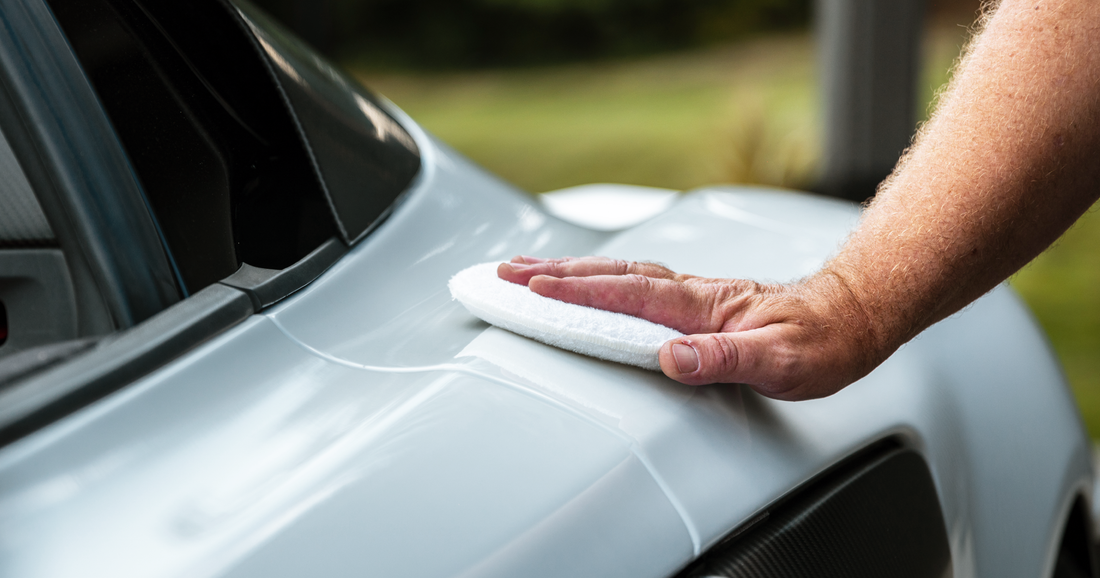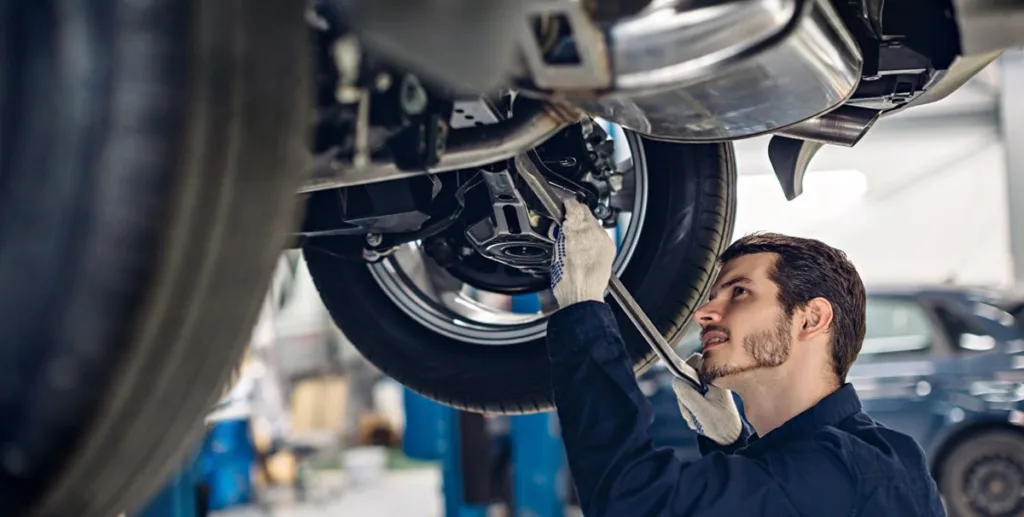All Categories
Featured
Responsible for integrating the rotation of the crankshaft and camshaft, the timing belt ensures the engine's shutoffs open and close at the correct times throughout the burning procedure. If the timing belt falls short, it can result in severe engine damages.
What Is a Timing Belt? The timing belt is a long, toothed rubber or composite belt that links the crankshaft to the camshaft(s) in an interior burning engine. Its work is to maintain the engine's shutoffs and pistons in sync, ensuring the engine runs effectively. The timing belt additionally manages other crucial engine features like the water pump and the power steering pump, depending upon the lorry.
![]()
Without the correct timing, the engine's pistons and shutoffs can clash, causing substantial and pricey damages. Changing the timing belt on timetable is one of the best ways to guarantee your engine runs at its best and avoid pricey repair work.
Why Timing Belt Substitute Issues. Preventing Catastrophic Engine Damage: One of the most significant risk of not replacing a worn timing belt is engine failure. If the timing belt breaks while the engine is running, the camshaft and crankshaft can end up being misaligned, causing the pistons and shutoffs to clash. This can result in curved valves, harmed pistons, or also a damaged engine. Replacing the timing belt at the advised periods is the very best way to stop such disastrous damage, saving you from the stress and anxiety and high price of engine repair services or replacement.
![]()
Maintaining Engine Performance: A timing belt that remains in good condition makes sure that all engine components work in ideal harmony. If the timing belt is used or stretched, it can trigger the engine to lose power, experience rough idling, or battle to start. By replacing the timing belt regularly, you can keep your engine running at peak effectiveness, which assists preserve optimal fuel economy and performance.
Preventing Unforeseen Failures: A damaged timing belt can cause your engine to stop quickly, possibly leaving you stranded in the middle of a journey. By changing your timing belt in a timely manner, you decrease the danger of abrupt break downs that can leave you in a bothersome or unsafe scenario. Normal upkeep decreases the possibilities of experiencing these sort of interruptions, assisting you remain on the roadway much longer without stressing about your engine falling short.
Cost-Effective Maintenance: Timing belt replacement is much more economical than fixing or replacing an engine that's been harmed because of a timing belt failing. While the price of changing the timing belt might vary depending upon your vehicle and its area, it is far extra affordable than the expenses connected with major engine repairs or replacements. Replacing your timing belt at the suggested intervals can conserve you a significant amount of money over the future by protecting against damage to your engine.
When Should You Change Your Timing Belt? The timing belt doesn't last for life, and the majority of suppliers advise changing it in between 60,000 and 100,000 miles. The exact timing depends on your vehicle's make, design, and driving conditions, so it's necessary to inspect your owner's handbook for particular guidance.
Indicators that your timing belt may need attention include uncommon engine noises (such as a high-pitched whining or ticking noise), trouble starting the engine, or a reduction in engine efficiency. If you notice any one of these indicators, it's crucial to have the timing belt evaluated by an expert auto mechanic.
![]()
Final thought. The timing belt is a vital however little component of your engine, and routine substitute is essential to preserving your automobile's performance and protecting against costly damages. By remaining on top of timing belt maintenance, you'll guarantee your engine runs effectively, stay clear of unforeseen malfunctions, and secure your vehicle from major repair services. Watch on your lorry's suggested timing belt replacement timetable, and always talk to a relied on technician to maintain your engine running smoothly for several years to find.
What Is a Timing Belt? The timing belt is a long, toothed rubber or composite belt that links the crankshaft to the camshaft(s) in an interior burning engine. Its work is to maintain the engine's shutoffs and pistons in sync, ensuring the engine runs effectively. The timing belt additionally manages other crucial engine features like the water pump and the power steering pump, depending upon the lorry.

Without the correct timing, the engine's pistons and shutoffs can clash, causing substantial and pricey damages. Changing the timing belt on timetable is one of the best ways to guarantee your engine runs at its best and avoid pricey repair work.
Why Timing Belt Substitute Issues. Preventing Catastrophic Engine Damage: One of the most significant risk of not replacing a worn timing belt is engine failure. If the timing belt breaks while the engine is running, the camshaft and crankshaft can end up being misaligned, causing the pistons and shutoffs to clash. This can result in curved valves, harmed pistons, or also a damaged engine. Replacing the timing belt at the advised periods is the very best way to stop such disastrous damage, saving you from the stress and anxiety and high price of engine repair services or replacement.

Maintaining Engine Performance: A timing belt that remains in good condition makes sure that all engine components work in ideal harmony. If the timing belt is used or stretched, it can trigger the engine to lose power, experience rough idling, or battle to start. By replacing the timing belt regularly, you can keep your engine running at peak effectiveness, which assists preserve optimal fuel economy and performance.
Preventing Unforeseen Failures: A damaged timing belt can cause your engine to stop quickly, possibly leaving you stranded in the middle of a journey. By changing your timing belt in a timely manner, you decrease the danger of abrupt break downs that can leave you in a bothersome or unsafe scenario. Normal upkeep decreases the possibilities of experiencing these sort of interruptions, assisting you remain on the roadway much longer without stressing about your engine falling short.
Cost-Effective Maintenance: Timing belt replacement is much more economical than fixing or replacing an engine that's been harmed because of a timing belt failing. While the price of changing the timing belt might vary depending upon your vehicle and its area, it is far extra affordable than the expenses connected with major engine repairs or replacements. Replacing your timing belt at the suggested intervals can conserve you a significant amount of money over the future by protecting against damage to your engine.
When Should You Change Your Timing Belt? The timing belt doesn't last for life, and the majority of suppliers advise changing it in between 60,000 and 100,000 miles. The exact timing depends on your vehicle's make, design, and driving conditions, so it's necessary to inspect your owner's handbook for particular guidance.
Indicators that your timing belt may need attention include uncommon engine noises (such as a high-pitched whining or ticking noise), trouble starting the engine, or a reduction in engine efficiency. If you notice any one of these indicators, it's crucial to have the timing belt evaluated by an expert auto mechanic.

Final thought. The timing belt is a vital however little component of your engine, and routine substitute is essential to preserving your automobile's performance and protecting against costly damages. By remaining on top of timing belt maintenance, you'll guarantee your engine runs effectively, stay clear of unforeseen malfunctions, and secure your vehicle from major repair services. Watch on your lorry's suggested timing belt replacement timetable, and always talk to a relied on technician to maintain your engine running smoothly for several years to find.
Latest Posts
Include Convenience and Character to Your Home with Area Rugs
Published Apr 20, 25
1 min read
Your Neighborhood Floor Covering Experts in Orland Park, IL
Published Apr 20, 25
1 min read
Courtside Snack Shack: Quick Bites for Sports Enthusiasts
Published Apr 20, 25
1 min read